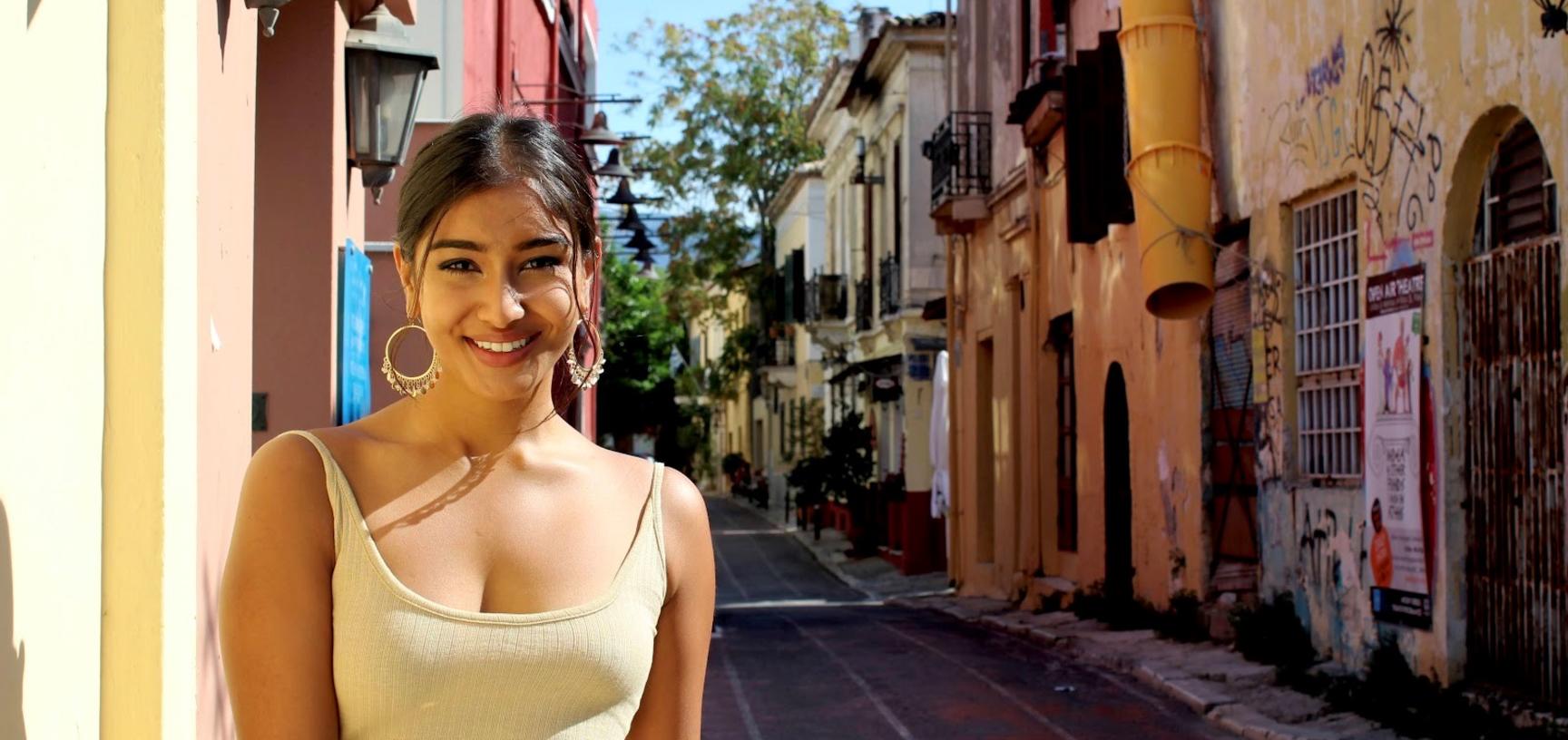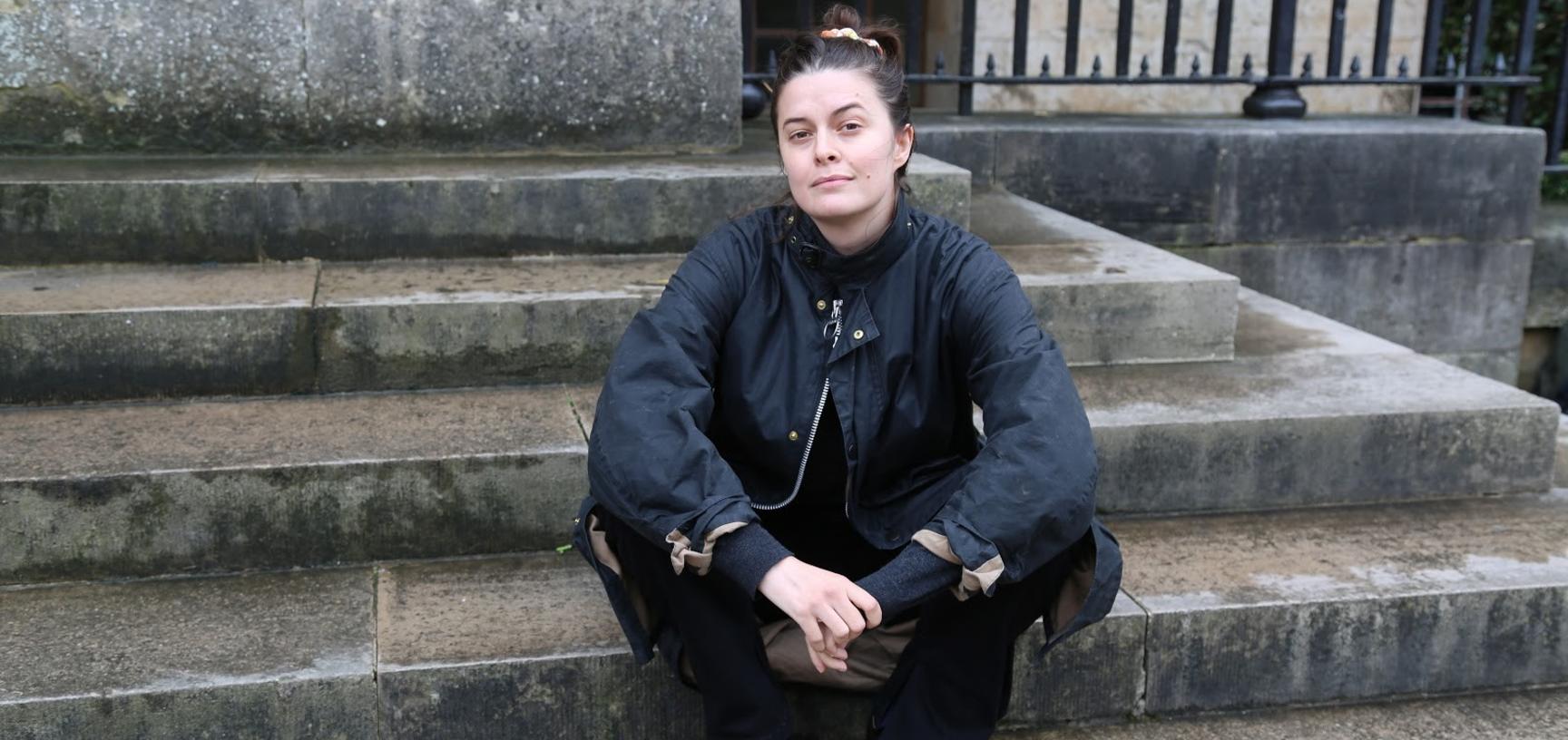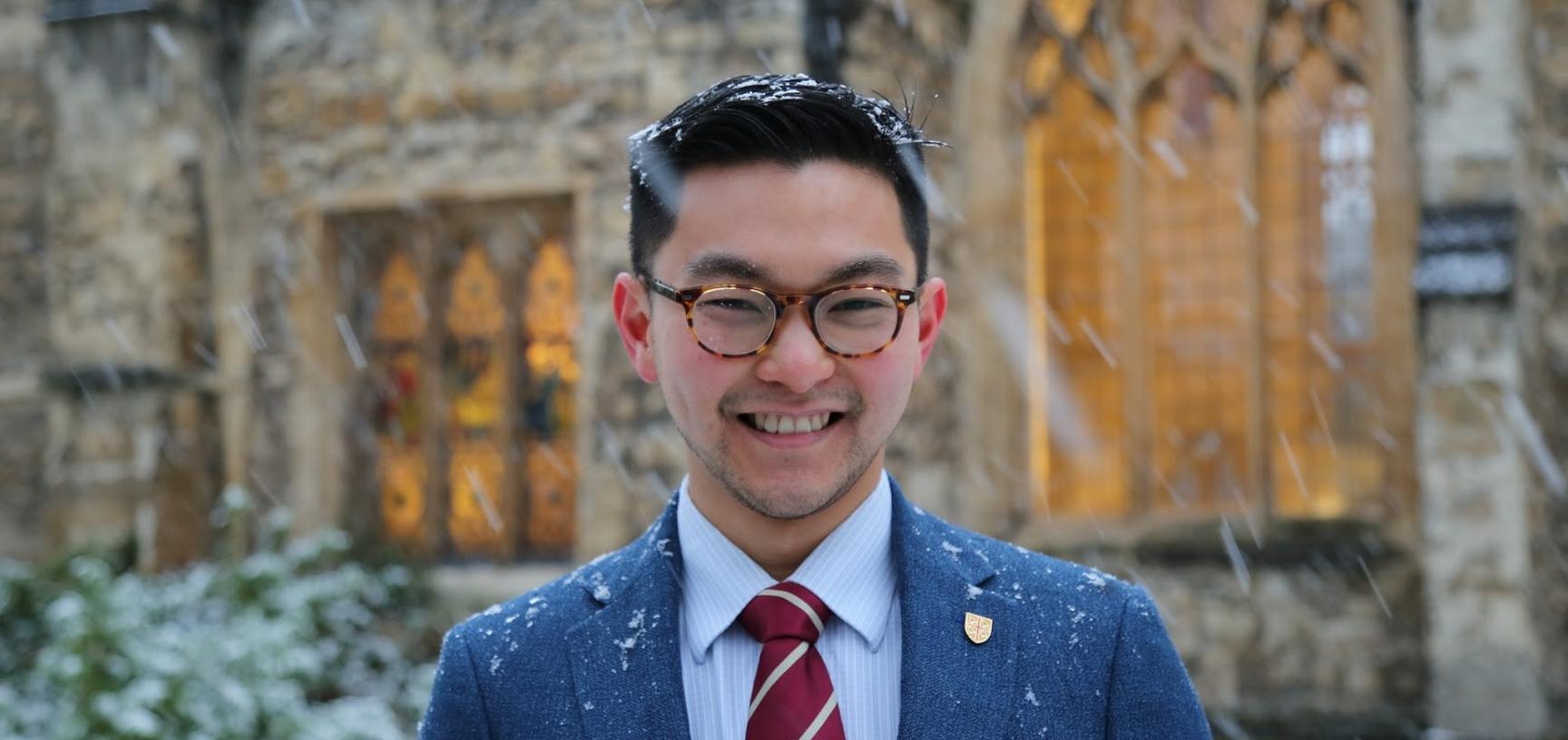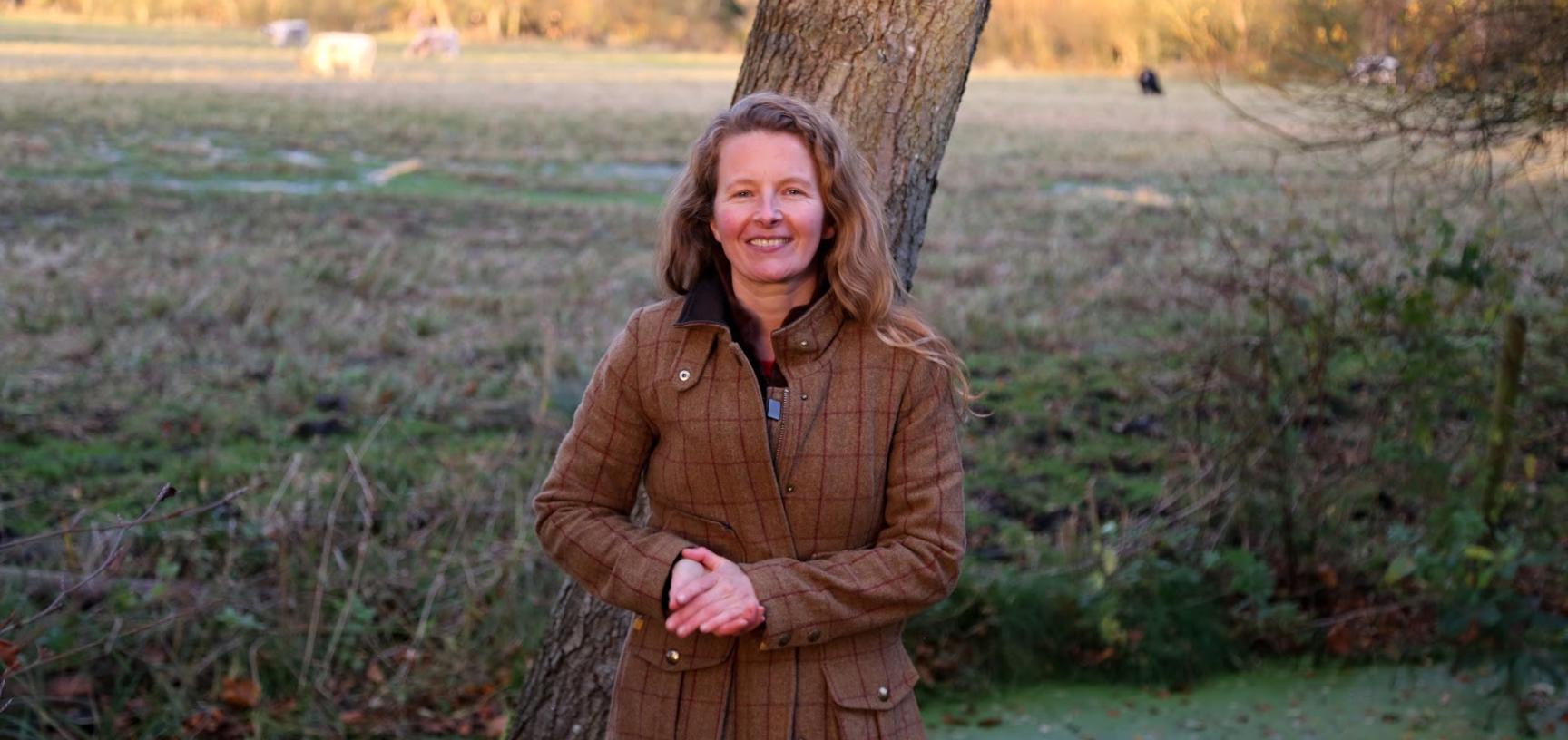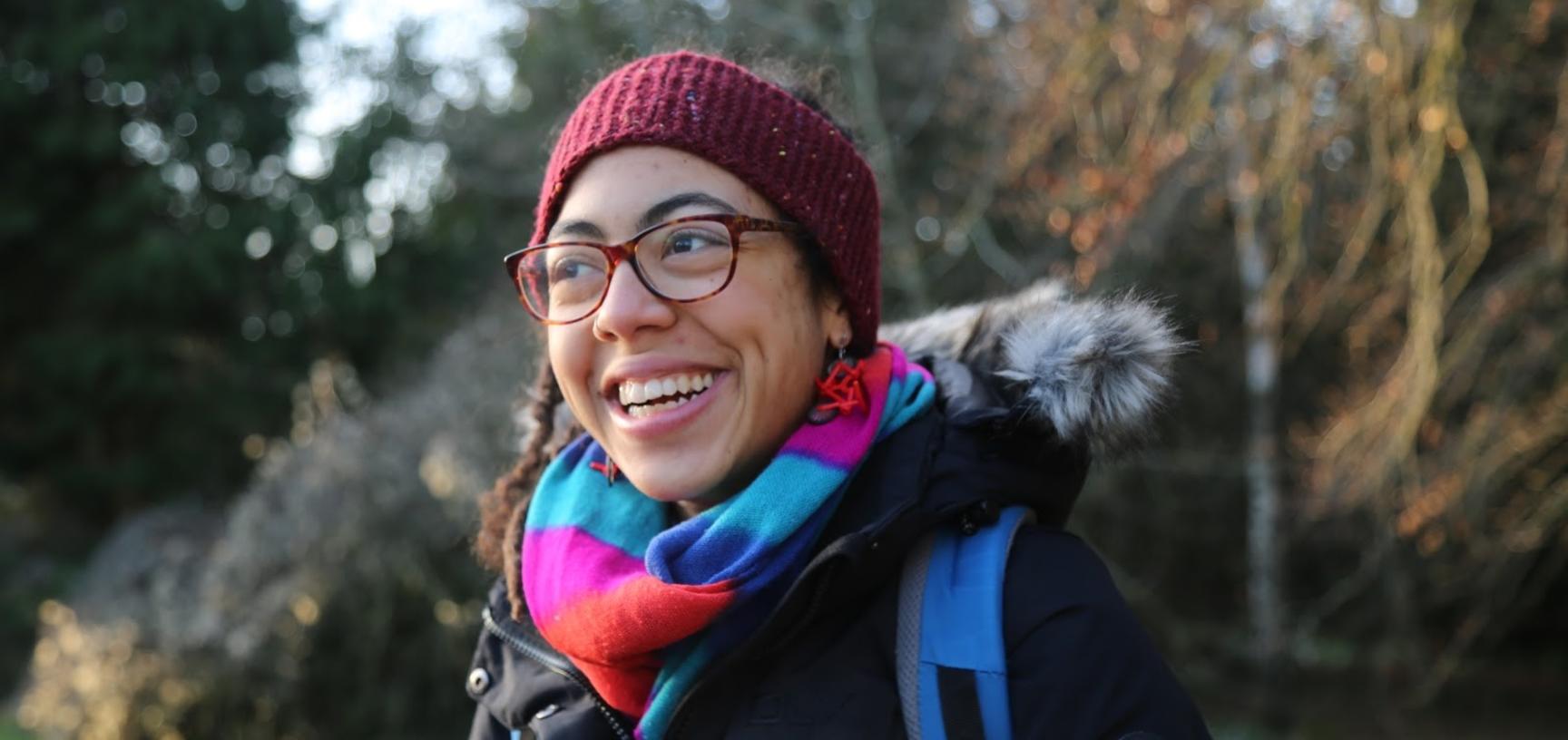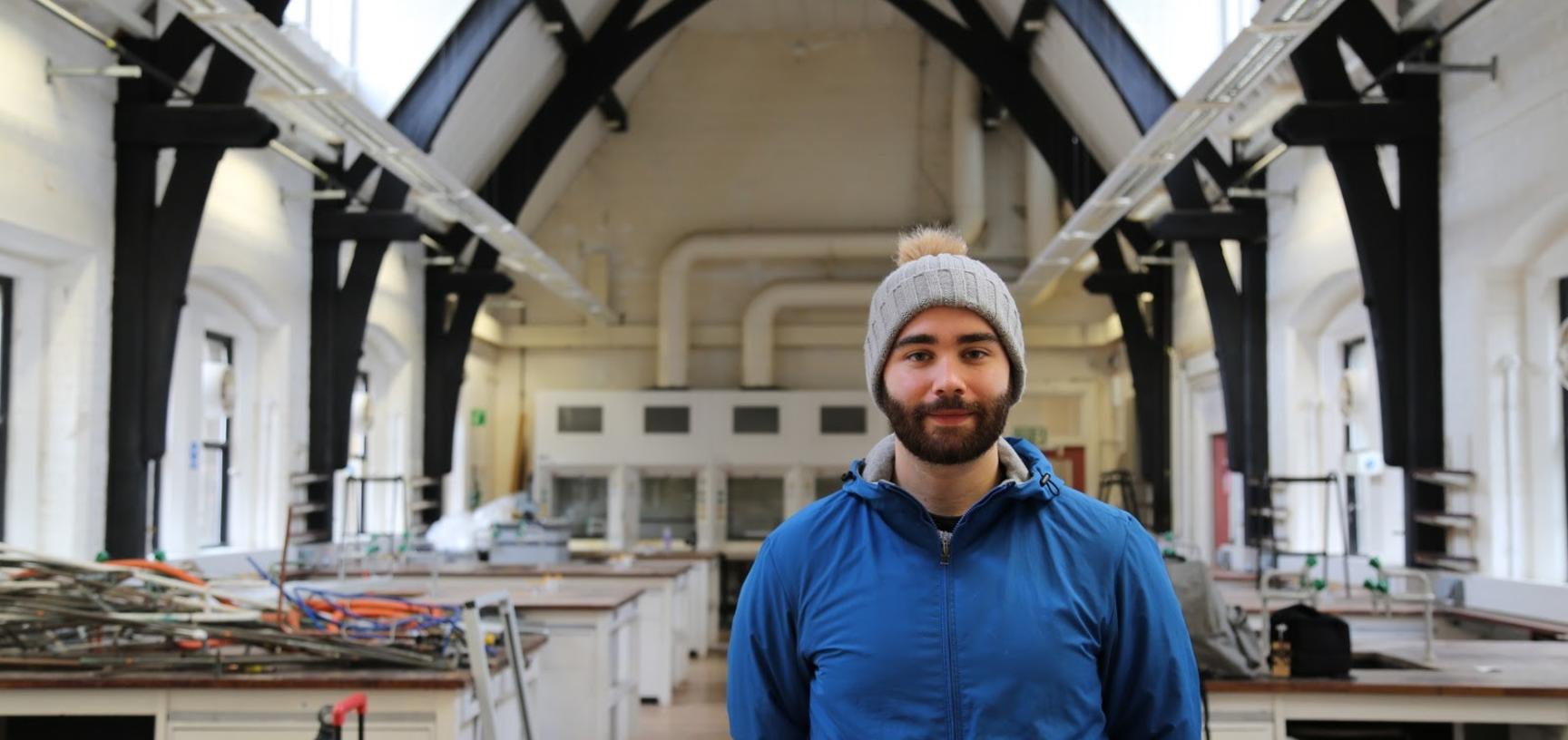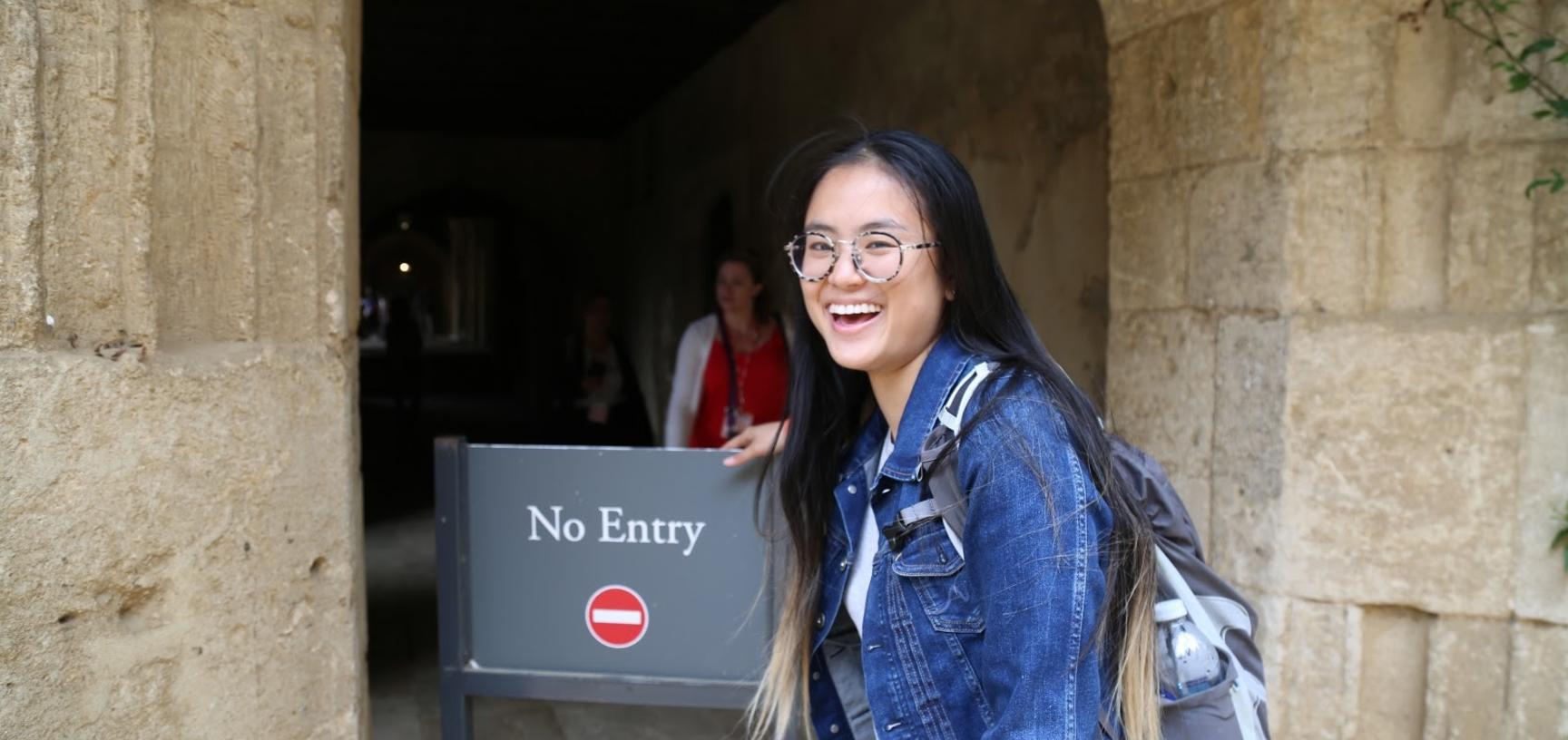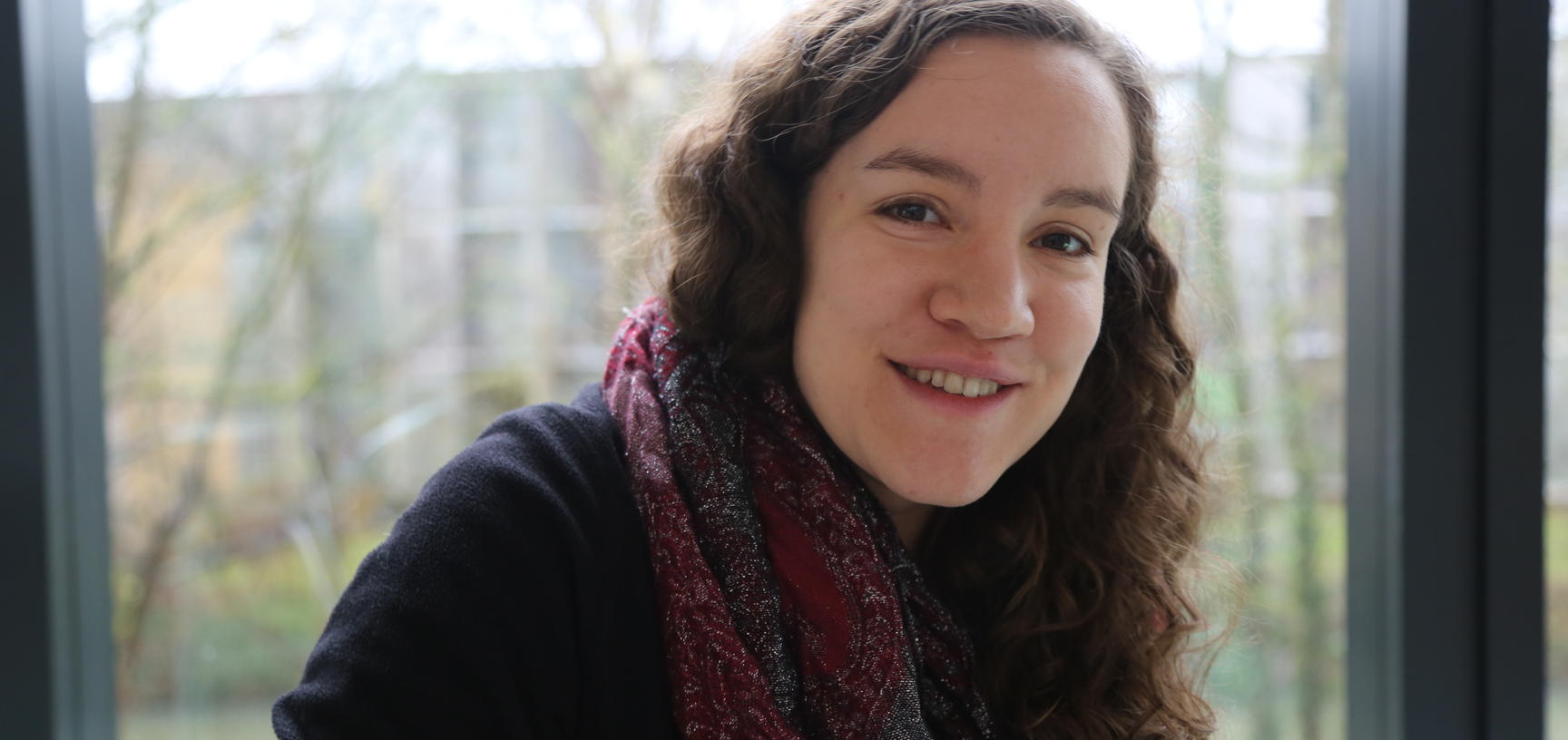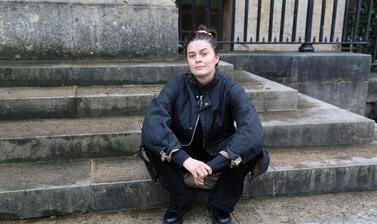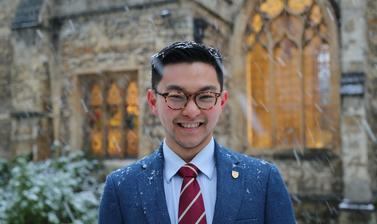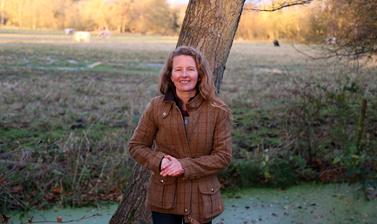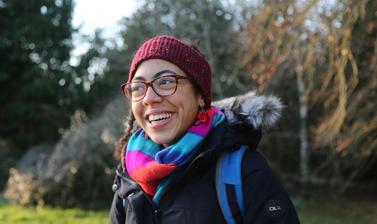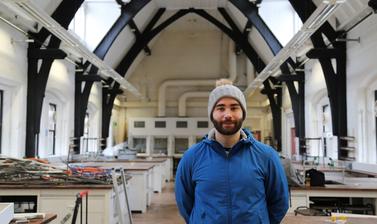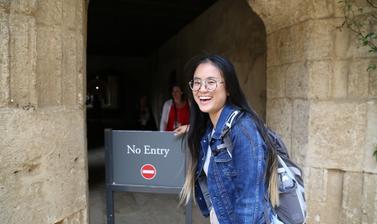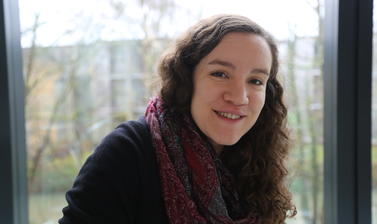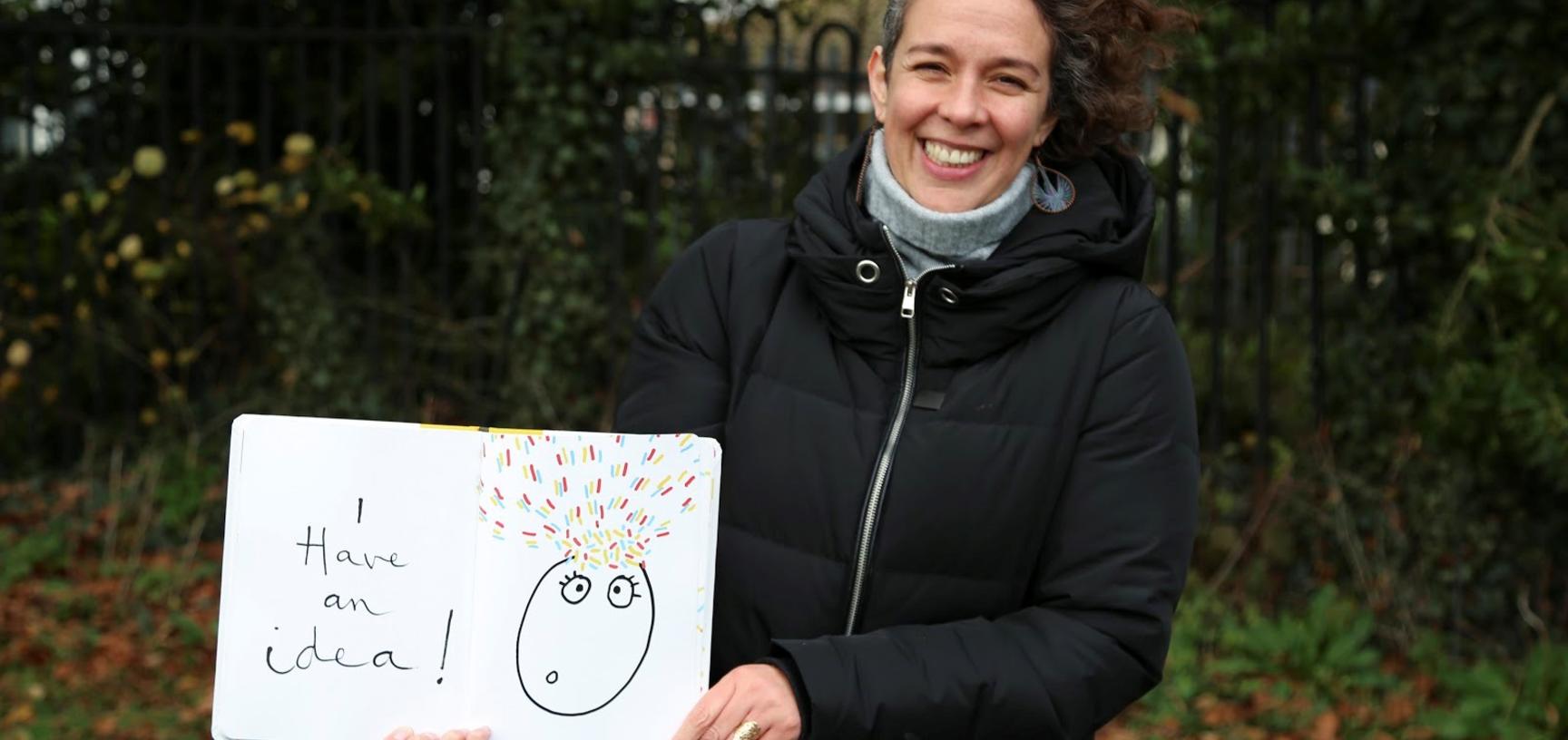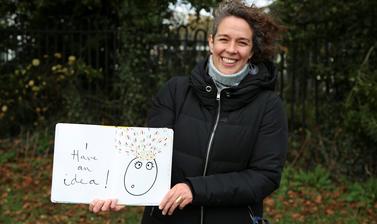Dyslexia at Oxford

Part of the Humanities Cultural Programme, one of the founding stones for the
future Stephen A. Schwarzman Centre for the Humanities.
Primary Investigator
Olivia Williamson (Ruskin School of Art)
Partner Organisations:
Dyslexia at Oxford is a visual film and photography project in conversation with students, alumni, staff, tutors, researchers at both The University of Oxford, Oxford Brookes University and members of the local community about dyslexia, exploring the strengths and challenges of having a different brain wiring. Grounded in human storytelling, threads from conversations with speakers are woven together to generate a sense of both shared and diverging experiences, of a network of neurodivergent people in one city.
‘Oxford’ has an international reach, and the city provides a clear contradiction to the false narrative that dyslexia & dyslexic traits = dumb. Many of the stories point to a structural lack of inclusion in education and access to information about dyslexia and neurodiversity more widely. Visible conversations around neurodiversity create the opportunity for learn and be empowered by different ways of thinking, creating moments of recognition and opportunities to share strategies when facing challenges. This project celebrates our different ways of thinking, the stronger teams that can be created and the benefit to society if difference is valued, supported and seen as part of what makes us human.
The project takes the form of an extended video conversation with 21 speakers, with extended cuts of the speakers on the project page above, alongside a series of portraits, and short texts about the speakers.
Film Premiere - March 31st at 4pm
Please take a moment to share your feedback
https://www.youtube.com/embed/zqXKB2MU5oU
Trailer
The Partner for this project is The University of Oxford’s Disability Advisory Service.

Dyslexia at Oxford is a visual film and photography project in conversation with students, alumni, staff, tutors, researchers at both The University of Oxford, Oxford Brookes University and members of the local community about dyslexia, exploring the strengths and challenges of having a different brain wiring. Grounded in human storytelling, threads from conversations with speakers are woven together to generate a sense of both shared and diverging experiences, of a network of neurodivergent people in one city.
‘Oxford’ has an international reach, and the city provides a clear contradiction to the false narrative that dyslexia & dyslexic traits = dumb. Many of the stories point to a structural lack of inclusion in education and access to information about dyslexia and neurodiversity more widely. Visible conversations around neurodiversity create the opportunity for learn and be empowered by different ways of thinking, creating moments of recognition and opportunities to share strategies when facing challenges. This project celebrates our different ways of thinking, the stronger teams that can be created and the benefit to society if difference is valued, supported and seen as part of what makes us human.
The project takes the form of an extended video conversation with 21 speakers, with extended cuts of the speakers on the project page above, alongside a series of portraits, and short texts about the speakers.
Taking these figures as rough guides:
15% of the population are dyslexic (Source)
40% of self made millionaires are dyslexic (Source)
50% of people in prison are dyslexic (Source)
52% of Teachers report they have had no dyslexia training in the UK (Source)
and 9 in 10 of those that did said it was under an hour (Source)
80% of students in the UK are undiagnosed (Source)
95% of parents said they felt the knowledge and resource to support their dyslexic child (Source)
300-700 pounds is the cost of a dyslexia assessment (Source)
Source:
Educational cost of dyslexia from APPG report, 2019, BDA
Schools ‘failing to diagnose at least 80% of dyslexic pupils, 2019, BBC
Advice for Teachers, Dyslexia Research Trust
A community project is only possible with a community of people behind it:
Bridie, Daniel, Genevieve, Hannah, Kelly, Michelle, Ryan, Sara, Thomas and Vance. Thank you for responding to an open call two years ago to before this project had a fixed final form - those first 10 conversations made this next step possible.
Alda, Alex, Andrew, Claire, Deshna, Eddie, Graeme, James, John, Kate, Katherine, Kitty, Leslie, Louise, Marion, Richard, Ryan, Sara, Sarah and Victoria. Thank you for responding to the second open-call/ or email out of the blue - for supporting the project and sharing your experiences, insight and openness. Collaborating as storytellers and also contributing your own visual material as we adapted to the pandemic. Oxford Sparks also generously gave permission to use footage from The RainDrop Experiment.
Alex Tait and Marion Frostick - Making a world of difference as dyslexia advisors and for support in the early stages of the project.
Charlie-Brades Price - Technical advice and links to resources.
Daria Martin - Supporting the application stage of this project.
Helena Greening, Mihaela Man, Agnes Pethers, Eva Stout. Content feedback & being there every step of the way.
Holly Knights - Patient & thoughtful project liaising & support in adapting project to pandemic.
Jenny Whiffen - Going through every edit, helping with paperwork and life-long spell checking.
Jules Williamson - Mentorship at every stage, invaluable advice, expertise, guidance and game-changing editing feedback.
Katherine Noren Curtis - Early support on the project, directing towards resources and networks, & bringing the Disability Advisory Service onboard as partner.
Krisztina Lugosi & Nikki Carter - Putting this content onto the TORCH website in such a thoughtful way.
Maggie Snowling & Philip Kirby - Adding words of support to project application.
Peter Whiffen - Finding and sending the SD card.
Open/Ended team - Fast-track learning on project managing & space to think about story.
The Ruskin Community - Tutors and peers for three years of great conversations.
Thank you!!!
Below is a list of Materials found useful along the way of researching dyslexia:
Articles
-
Discovering I’m Dyslexic and What has dyslexia taught me about project management? By Richard Auburn
-
Our Dyslexia Heroes are Too White: Addressing Representation In Business With Marcia Brissett-Bailey, cofounder of the BDA Cultural Perspective Committee
-
The Battle over Dyslexia: by Sirin Kale, Illustration by Nathalie Lees, The Guardian
-
Workplace Neurodiversity: The Power Of Difference Research from The Institute of Leadership & Management has revealed half of leaders and managers would not employ a neurodiverse person.
-
Schools 'failing to diagnose at least 80% of dyslexic pupils', BBC, 2019
Books
Course
-
Dyslexia Awareness: In partnership with Made By Dyslexia - Free Dyslexia Training (2hrs - video format)
Film
-
Education - Small Axe Directed and co-written by Steve McQueen, who is also dyslexic
Lecture
-
#WhyDisabledPeopleDropOut University of Oxford 2020 Annual Disability Lecture by Kate West
Podcast
-
CodPast - Right Brained Stories from Interesting individuals
-
Word of Mouth - Dyslexia Michael Rosen talks in depth about dyslexia with expert Professor Maggie Snowling
Reports
-
Made by Dyslexia Connect the Spots This report finds that dyslexic thinkers are ready for the workplace of tomorrow. It calls for every teacher to be trained to spot, support and empower every dyslexic learner.
-
The human cost of dyslexia The emotional and psychological impact of poorly supported dyslexia. Report from the All-Party Parliamentary Group for Dyslexia and other SpLDs April 2019
-
The Value of Dyslexia EY Building a better working world in association with Made by Dyslexia
Research
-
The Dyslexia Research Trust: Includes Genetics and Dyslexia, Dyslexia and Hearing, Use of Coloured Filters, Can Omega 3 help Dyslexia? Prof. John Stein & Sue Fowler
-
The Evolution of Complementary Cognition - Helen Taylor
Videos
-
Dyslexia, ADHD Diagnosis in Adulthood: A Personal Story, Yimeng Ciu with Understood
-
DYSPLA - The Neurodiverse Aesthetic
-
The Gift of Dyslexia - Prof. John Stein with Dyslexia International
-
Diagnosing Dyslexia: New Criteria, New Dyslexics? - Arije-Aike de Haas, dyslexic education scientist
-
The Creative Brilliance of Dyslexia | Kate Griggs | TEDxBrighton
-
What is dyslexia? - Kelli Sandman-Hurley, TED-ED
Websites
-
Dyslexic Academic edited by Kate West
Oxford Specific Resource
-
Disability Advisory Service Report 2018-2019 (2020-2021 report coming soon)
-
Helen Arkell Dyslexia Charity Oxford Hub
Picture books recommended by Alda
-
All the ways to be smart by Davina Bell
I have an Idea! By Hervé Tullet
Assistive technology recommended by speakers
-
Voice Dream - App for fast text scanning.
-
Grammarly - AI spell checker and writing assistant.
-
Bookshare - Free for US Students
-
OpenDyslexic - One of several Dyslexia friendly fonts.
-
Helperbird - Browser add-ons for changing font on webpages
-
SensusAccess - allows students, faculty, staff and alumni to automatically convert documents into a range of alternate media including audio books (MP3 and DAISY), e-books (EPUB, EPUB3 and Mobi) and digital Braille.
Looking for more resources on dyslexia? More information from other organisations:
International Dyslexia Association
Neurodiversity Celebration Week
The Yale Center for Dyslexia and Creativity
Dyslexia at Oxford is a community film and photography project about neurodiversity and the strength of different brain wirings.
https://www.youtube.com/embed/zqXKB2MU5oU
-
Andrew Day, Head of Unicorn School, He/Him & Clare Roberts, Outreach Coordinator, She/Her
-
Graeme Hughes, Artist and Ruskin School of Art Visiting Tutor for Printmaking, He/Him
-
Prof. John Stein, Dyslexia Research Trust Co-Founder, He/Him
-
Dr. Richard Auburn, Senior Licensing and Venture Manager, He/Him
-
Dr Kate West - Visual Criminologist & Lecturer at Oxford Brookes University (She/Her)
-
Katherine Noren, Head of Disability Advisory Service, She/Her
-
Alda Porter - Neurodiversity and Mental Health Mentor - She/ Her
-
Louise Gallagher Senior Tenancy Manager, Oxford City Council, She/Her
-
Dr Victoria McGuinness, Head of Cultural Programming and Partnerships at TORCH, She/Her

